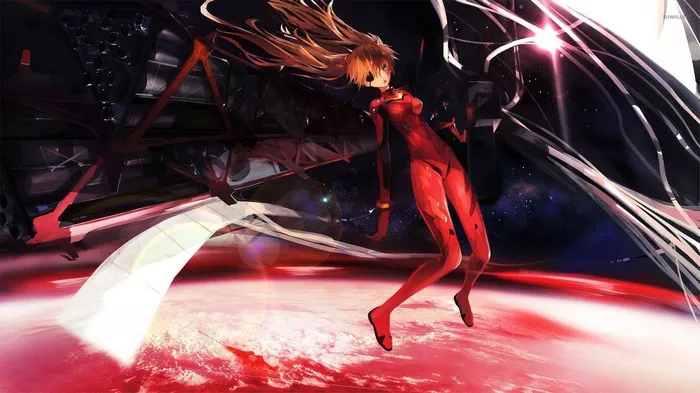Neon Genesis Evangelion, created by Hideaki Anno, is widely regarded as one of the most influential and groundbreaking anime series of all time. Launched in 1995, Evangelion captivated audiences with its compelling characters, intricate plotlines, and thought-provoking themes. Over the years, the series has sparked intense debate and speculation among fans, particularly regarding its ambiguous and enigmatic ending. In this article, we embark on a journey to unravel the mysteries of Evangelion and uncover the true ending that lies beneath the surface.
The Journey of Shinji Ikari: A Psychological Odyssey
At the heart of Evangelion is the journey of Shinji Ikari, a troubled teenager thrust into the role of a mecha pilot tasked with defending humanity against mysterious creatures known as Angels. Throughout the series, Shinji grapples with issues of identity, self-worth, and existential angst as he navigates the complexities of adolescence and confronts the traumas of his past. As the series progresses, Shinji’s psychological state becomes increasingly fragile, culminating in a series of surreal and surrealistic episodes that challenge viewers’ perceptions of reality and truth.
Deciphering the End: Exploring Evangelion’s Final Episodes
The Infamous “Congratulations” Moment
One of the most controversial aspects of Evangelion’s ending is the infamous “Congratulations” moment in the final episodes. In these surreal and abstract episodes, Shinji is plunged into a psychological abyss, where he confronts his deepest fears and insecurities. As Shinji grapples with his inner demons, he is forced to confront uncomfortable truths about himself and the world around him. The “Congratulations” moment, in which Shinji is congratulated by his fellow pilots and friends, has been interpreted in various ways by fans, with some seeing it as a moment of catharsis and others as a cruel twist of fate.
The Instrumentality Project: Ascension or Damnation?
Central to Evangelion’s final episodes is the concept of the Instrumentality Project, a mysterious plan to merge all human souls into a single collective consciousness. As Shinji struggles to make sense of his reality and his place within it, he is confronted with the choice to either embrace the Instrumentality Project and lose his individuality or reject it and assert his autonomy. The resolution of this existential dilemma is left open to interpretation, with fans speculating on the true nature of Shinji’s decision and its implications for the future of humanity.
The Power of Human Connection: Finding Salvation in Others
Amidst the existential angst and surrealism of Evangelion’s final episodes, there is a recurring theme of human connection and the power of relationships to provide solace and meaning in the face of adversity. As Shinji grapples with his inner turmoil, he is reminded of the bonds he shares with his friends and loved ones, including his fellow pilots, Misato, and Rei. These connections serve as a source of strength and support for Shinji, helping him to navigate the complexities of his emotions and find hope in the midst of despair.
Unveiling the True Ending: Evangelion: 1.0, 2.0, 3.0, +1.0
The Rebuild of Evangelion: Reimagining the Classic
In addition to the original series, Evangelion has been adapted into a series of films known as the Rebuild of Evangelion, which reimagines and expands upon the events of the original series. The Rebuild films offer a fresh perspective on the story of Evangelion, introducing new characters, plot twists, and revelations that shed light on the mysteries of the series.
Evangelion: 3.0+1.0 Thrice Upon a Time: The Final Chapter
The culmination of the Rebuild series, Evangelion: 3.0+1.0 Thrice Upon a Time, promises to provide fans with long-awaited answers to the lingering questions and unresolved plot threads of the original series. As the final chapter in the saga of Evangelion, Thrice Upon a Time offers a chance for closure and resolution, as well as an opportunity to revisit beloved characters and iconic moments from the series.
The True Ending: A Matter of Interpretation
Ultimately, the true ending of Evangelion is a matter of interpretation, with fans offering a myriad of theories and hypotheses about the fate of Shinji Ikari and the future of humanity. Whether viewed as a triumph of the human spirit or a bleak meditation on the nature of existence, Evangelion’s ending remains a testament to the power of storytelling and the enduring legacy of one of anime’s most iconic series.
Conclusion: The End of Evangelion
In conclusion, Evangelion’s true ending is a complex and multifaceted conclusion to one of anime’s most iconic series. As fans continue to dissect and analyze its themes, symbols, and hidden meanings, Evangelion remains a testament to the power of storytelling and the enduring legacy of Hideaki Anno’s visionary vision. Whether viewed as a masterpiece of psychological drama or a confounding enigma of existential angst, Evangelion’s ending is sure to leave a lasting impression on viewers for generations to come.


